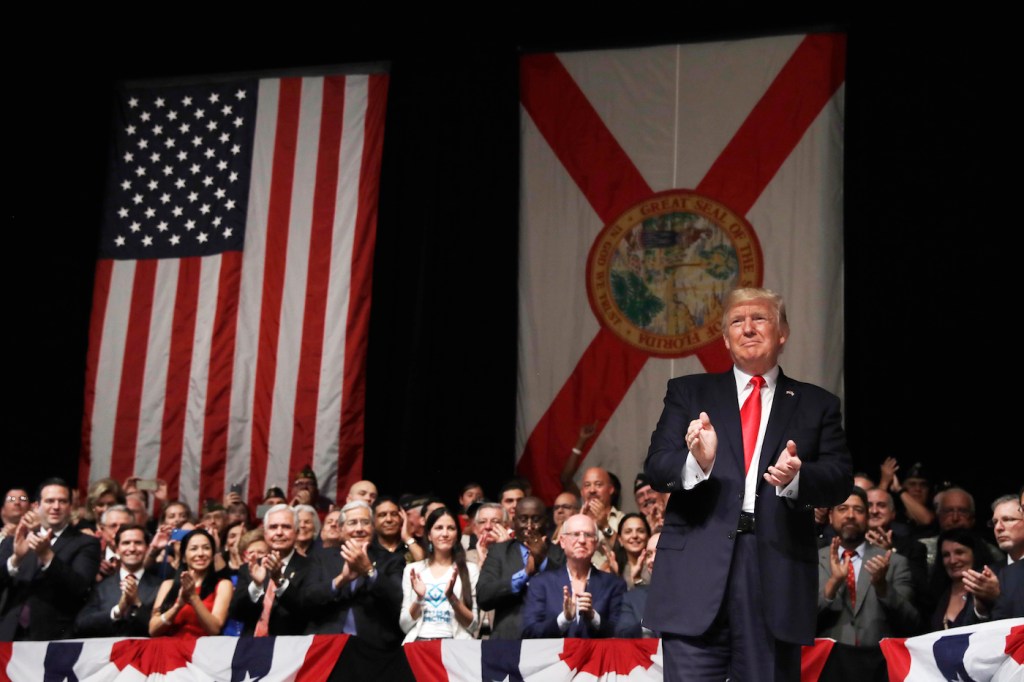Professor: Trump’s new Cuba policy will hurt island nation’s growing middle class

More than two years ago, then President Barack Obama announced plans to “normalize relations” between the U.S. and Cuban governments, effectively lifting a half-century trade embargo that the U.S. imposed on the island nation in 1963.
It was this move to restore diplomatic ties between the two countries that paved the way for Northeastern to form academic partnerships with two Cuban institutions—the University of Havana and the Antonio Núñez Jiménez Foundation.
Now President Donald Trump is working to crack down on Cuba, delivering a speech in Miami on Friday in which he announced plans to place new restrictions on travel and trade with the island nation.
We asked Northeastern professor Jose Buscaglia, a Caribbean scholar who played a key role in establishing the university’s partnerships in Cuba, to explain how Trump’s changes might impact the on-again, off-again relationship between the two nations.
Trump will not sever diplomatic ties with Cuba nor shutter the U.S. embassy that reopened there in 2015. But he will rollback the policy of greater engagement between the U.S. and Cuba in other ways. What are some of the specific changes that Trump plans to make?
The changes themselves are minimal compared to their consequences for U.S. relations with Latin America; in terms of substance, this is really a nothingburger. One of the biggest changes will focus on so-called “people-to-people” exchanges that, under Obama’s policy, allowed Americans to take cultural and educational trips to Cuba. All you had to do while visiting the country was keep a record of your activities, expenses, and engagements with locals. This is the type of travel that will be restricted or discouraged, mostly by inconveniencing American citizens at the border upon their return from the island. Moreover, certain American companies, mostly in the tourism sector, will likely be forbidden to do business with Cuban hotels, all of which are run by the military.
How will Trump’s policy changes affect the U.S.?
The impact on the U.S. will be minimal. The new restrictions will not forbid large economic transactions from continuing to take place like they have since the 1990s. For example, the U.S. sale of rice and chicken to Cuba will continue. Northeastern’s partnerships in Cuba will not be affected either. The university has strong commitments from several Cuban institutions, and I seriously doubt academic travel will be curtailed. We might face some new hurdles, particularly in terms of the transfer of money, but President Aoun has indicated that we will remain committed to broadening our commitments in Cuba and Latin America. I have no doubt that we will continue to move forward no matter how many walls, real or imagined, Trump may try to build.
Who will be most impacted by the new policies?
The new measures will hurt real people in Cuba. Under the policies put in place by the Obama administration since March of 2016, when the president visited Havana, the influx of American tourists to Cuba created a lot of jobs and boosted the income of what is now a growing Cuban middle class. The people who run private restaurants and who open up their homes to tourists will be directly affected. The Cuban military can withstand the impact of the policy shift, but mom and pop shops may suffer significant hardships. The irony is that in the name of “freeing Cuba,” whatever that may mean, the Trump administration has taken the wind out of the sails of people who are changing the country for the better.